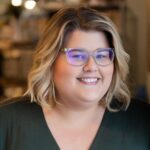Breast cancer survivor urges annual mammograms
Bonnie Teichmiller said her breast cancer diagnosis could not have come as more of a shock to her.
No one in her family had ever had ever fought cancer, except her son Ross Beard, when he was diagnosed with renal cancer.
Her diagnosis came as a result of her yearly mammogram, which Teichmiller said she has always been prompt about scheduling.
She had plans after her appointment to help plan her 55th high school reunion that afternoon. She didn’t make it to help plan the reunion, however, because the run-of-the-mill mammogram that normally takes half an hour ended up taking more than three hours.
At the end of it all, Teichmiller was free to go home with instructions to call a surgeon about a suspicious spot that showed on her results.
Soon after, she was officially diagnosed with invasive ductal carcinoma.
According to the American Cancer Society, more than 180,000 women in the United States find out they have invasive breast cancer each year. Most of them, nearly 80 percent, are diagnosed with invasive ductal carcinoma.
Teichmiller’s cancer was caught early, during Stage 1.
Teichmiller sought treatment from the Kirkland Clinic in Birmingham, and within a number of weeks, underwent a lumpectomy and then 22 doses of radiation five days a week.
Teichmiller’s journey through cancer, from diagnosis to remission, could have been very different, she said, had she not been diligent about her annual mammograms.
Declared cancer-free after her surgery, Teichmiller underwent radiation to ensure all the cancer cells – even those that do not show up on tests – were eradicated. Nearly four years later, she takes a daily chemotherapy pill to remain cancer-free.
“I’m about to go into my fourth year, and they’ll determine if I’ll continue on for five years or life. Sounds like a sentence, doesn’t it?” she said with a laugh.
Teichmiller said comparatively, she did not suffer like a lot of people suffer with cancer, and for that she is thankful.
“My support system, faith and positive attitude helped me get through it,” she added. “My husband and daughter helped me every step of the way, and they gave me ears other than my own to hear so that I would make the right decisions.
“We hear a lot about miracles but sometimes don’t realize that the miracle could be what God does to you mentally to prepare you,” she said. “I was very much at peace, and I guess that peace was ‘Whatever happens is OK.’”









